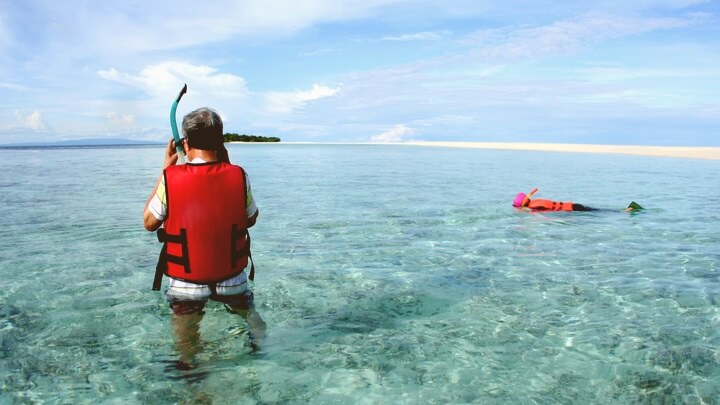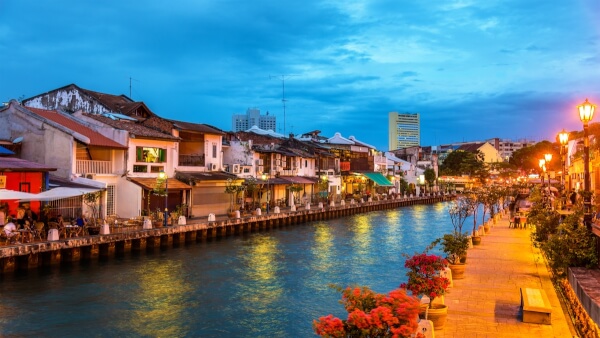Top 7 real estate agencies in Malaysia
Discover the Top 7 real estate agencies in Malaysia with our detailed guide. Navigate the real estate market with expert insights and reviews.

Malaysia was recently voted the sixth best country in the world to retire to, by International Living magazine. The climate, culture and costs make it a great bet whether you're a Brit, an American, or an Australian looking to enjoy expatriate life in retirement. There are large communities of foreigners in the resorts and cities in Malaysia, joining the vibrant local population, which is made up of people of Malay, Chinese, Indian and European descent.
With developed and modern cities, idyllic beaches on hundreds of islands, and untouched rainforest, there’s plenty to discover in Malaysia if you choose to retire here.
If you’re considering retiring in Malaysia, you’ll need to know a bit about how to go about arranging your move and the type of lifestyle you can expect there. Here’s a complete guide to how to retire in Malaysia as an expatriate.
The Malaysian official currency is the Ringgit. Each Ringgit is divided into 100 Sen. The code you’ll see in currency exchange stores is MYR, and the currency symbol used in stores and restaurants, and so on, is RM.
Exchange rates rise and fall, so it’s worth keeping an eye on the market so you know what your money will be worth in Malaysia. You can always get the most up-to-date figures by using anonline currency converter, but at the moment, here are some general, rounded figures to give you a basic understanding:
One of the big draws for foreigners looking to settle in Malaysia is the fantastic combination of modern cities and amenities, with low prices. This means that expats looking to live well on a fixed income can live a very comfortable life, whether that’s in one of the larger cities, or a beach-side resort.
The data site, Numbeo, provides averagecost of living data which can give valuable insight into the prices of everyday essentials, entertainment and travel in different locations.
| Regular goods | Average price in Malaysia (USD)* |
|---|---|
| Three course meal for two at mid-range restaurant | $11.73 |
| One litre of milk | $1.60 |
| Loaf of white bread | $0.74 |
| Bottle of wine (mid-range) | $11.73 |
| Petrol (One litre) | $0.48 |
| City centre apartment rental (One bedroom) | $352.42 |
| City centre apartment rental (Three bedroom) | $639.83 |
*These calculations are from Numbeo, which aggregates cost of living figures entered by locals. They’re an average across the country. Therefore, the actual costs will vary by region and city.
It’s definitely a good idea to do your research, and take into account all the costs connected with retiring in Malaysia.
One expensive pitfall for many expats is the high fees levied for international money transfers. If you need to regularly move money from a bank account at home to your Malaysian bank account, then it’s good to know that your home bank might not be the cheapest option for this service. Often, banks apply high charges for international money transfers you may not be aware of - the fees might well be hidden into poor exchange rates. A much better bet is a specialist service likeWise, where you can move your money from one country to the other using the real exchange rate, and with a low fixed fee - leaving you with more money to enjoy your retirement.
The cost of living in Malaysia varies enormously based on the type of lifestyle you lead, and where you choose to live. Numbeo estimates that a single person in Kuala Lumpur would need around $470 a month, to live, excluding rental costs.
Life in Penang, according to a similar calculation, is slightly more expensive, at around $485 for a single person excluding rent. However, both of these calculations assume a fair number of luxuries, eating out, gym membership and predominantly eating western style food at home. If you choose to live, shop and eat more like a local, you can cut costs even further, and retire very cheaply in Malaysia.
One cost you'll have to consider in addition, is that of accommodation. A one bed apartment in Penang centre will cost you around $265 a month, on top of your other expenses. However, as Malaysia is one of a relatively few places in Southeast Asia which allow foreigners to buy property without restrictions, you might choose to buy a place instead. This could bring down your daily expenses significantly, and allow you to retire comfortably wherever you choose.
If you’re looking to live on a more modest income, then your best bet is to try outside of the capital, as costs can vary significantly between locations. In a regional city like Batu Pahat, for example, your rent will likely come in at well under $200 a month for a single person apartment in the city, leaving you more cash for other things. You can estimate thecost of living in Malaysia, based on the city you're interested in, and your own lifestyle online.
Malaysia lies close to the equator, so naturally the weather is hot and humid most of the year. The country is split, with Peninsular Malaysia on the west, separated from East Malaysia by the South China Sea. Coastal areas tend to have pleasant weather, with the highlands more humid, cooler and wetter. In most lower altitude areas of the country, the temperature is very stable, with the rainfall being the main variant between seasons.
| City in Malaysia | Average Lowest Temp | Average Highest Temp |
|---|---|---|
| Kuala Lumpur | 27°C (81°F) | 28°C (82°F) |
| Penang | 27°C (81°F) | 28°C (82°F) |
| Sandakan | 27°C (80°F) | 29°C (83°F) |
| Sarawak | 26°C (79°F) | 28°C (82°F) |
The type of activity you get involved in, during your retirement in Malaysia, is really up to you. You can join any one of a huge variety of clubs, if you’re based in one of the larger cities. There are societies in Kuala Lumpur, for example, for citizens of Australia, America, Britain, African or Scandinavian countries and for people who like Aussie rules football, cross country or culture. And that’s only scratching the surface. A quick google search will tell you what’s available in the area you choose to live in.
Expats are generally made to feel very welcome, and because many Malaysians speak good English, there's no reason to feel you have to surround yourself with other expats if you don’t want to. You can dive right into the local community, and be sure that others will be delighted to involve you.
One of the strengths of Malaysia is the sheer variety. You could fill your days sitting in malls, watching the world go by, eating western food exclusively and mingling with the expat set at your country club. Or, you could live a more rural lifestyle, getting involved in village activities, and exploring the unspoiled wilderness for fun. Or - of course - somewhere in between. It’s your retirement - you can have the best of both worlds if you wish!
Malaysia is a large and varied country. The capital, Kuala Lumpur, is a truly global city, with a huge expatriate community. The strong economic development of Malaysia, and the government’s commitment to developing a digital economy have contributed to an influx of expats looking to set up businesses in the city. The facilities in Kuala Lumpur are modern with strong infrastructure, good hospitals and world class eating, entertainment and shopping. Naturally, like any big city, there are areas of Kuala Lumpur which aren't particularly safe, so if you’re choosing a home here, you should visit the area at different times of day before commiting to make sure you feel comfortable. You can compare thecrime rates in Kuala Lumpur with your hometown, using Numbeo.
A very popular alternative to living in the capital, is to choose George Town, an island city off the coast of the peninsular, north of Kuala Lumpur. The pace of life here is somewhat slower. The city is built around a colonial town, which has an area now designated as a UNESCO World Heritage Site. That said, the city is far from backward looking. Georgetown has great facilities and is a very mixed cosmopolitan place, with everything an expat retiree could want. And the added bonus is that in George Town,crime is quite consistently low, and residents report that they feel safe walking alone day and night. This might be why George Town appears regularly in lists of the best global cities to retire to.
If you’re a Brit, American or Australian citizen looking to retire in Malaysia, the chances are that the MM2H Visa will be right for you. This stands for the ‘Malaysia My 2nd Home’ visa, and gives holders a 10 year, multiple entry visa to settle in the country. The government is encouraging foreigners to settle through this route, and even provides advice, support and some tax breaks to foreigners coming tolive in Malaysia. You can apply in Malaysia, or before you move to the country, and the exact process depends on where you’re intending to settle in the country. There are authorised agents who will help you manage your application for a fee, if this is easier.
There are some criteria attached to this visa type, including that you can show you have the financial means to support yourself. If you’re under 50 years old, you'll have to show you hold at least RM 500,000 (in the region of $117,000), and if you’ve over 50, you have to have RM 350,000 (about $82,000) in your bank. Aside from proving your financial assets, you’ll also have to hand over a stack of paperwork, socheck out the details in advance to see what you need to assemble.
It’s good to remember that the visa is only valid as long as your passport is, so if your passport will expire within the next 10 years you’ll need to renew it and reapply for your MM2H visa at the same time.
The MM2H visa website provides a guide to all aspects ofmoving to Malaysia. This is a great place to start when you’re considering the steps needed to be able to retire in Malaysia.
The opportunity of retirement in Malaysia attracts people from all over the globe. Whether you’re looking to spend time in the buzz of Kuala Lumpur, the sedate colonial hub of George Town or even get off the beaten path and retire to the Malaysian countryside, you’ll be welcomed.
Good luck, and enjoy planning your dream retirement in Malaysia.
*Please see terms of use and product availability for your region or visit Wise fees and pricing for the most up to date pricing and fee information.
This publication is provided for general information purposes and does not constitute legal, tax or other professional advice from Wise Payments Limited or its subsidiaries and its affiliates, and it is not intended as a substitute for obtaining advice from a financial advisor or any other professional.
We make no representations, warranties or guarantees, whether expressed or implied, that the content in the publication is accurate, complete or up to date.

Discover the Top 7 real estate agencies in Malaysia with our detailed guide. Navigate the real estate market with expert insights and reviews.

Your full guide to the Malaysian work visa and the work permit in Malaysia.

A complete overview on the cost of living in Malaysia.

If you’re an expat that’s just accepted a position in Malaysia - congrats! The country is an exciting mecca of industry and commerce, as well as a central hub...

Making phone calls to someone abroad can be complicated. If you’re trying to access mobile service from your smartphone, you may have to deal with new...

Whether you’re starting a business, getting a work visa, or just adjusting to life as a new expat in Malaysia, it’s important to understand the Asian...